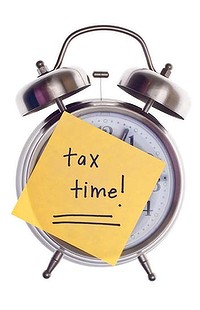Newsletter
Instant Asset Write-Off and Accelerated Initial Deduction for Motor Vehicles
- Sunday, 01 March 2015 06:41
On 5 September 2014 the Minerals Resource Rent Tax Repeal and Other Measures 2014 received royal assent. The repeal of the provision allowing small businesses to instantly write-off certain assets and allowing small businesses an accelerated initial deduction for motor vehicles are two of the other related measures. The changes to these related measures will apply from 1 January 2014.
INSTANT ASSET WRITE-OFF
For the 2012–2013 income year small businesses had been able to write-off depreciating assets costing less than $6,500 in the income year in which they start to use the asset, or have it installed ready for use. They can also depreciate most other assets in the general small business pool at a rate of 15% in the first year and 30% thereafter. 
From the 1 January 2014, the threshold will change and only assets costing less than $1,000 (acquired and installed ready for use after 31 December 2013) will be eligible for immediate write-off. Assets costing $1,000 or more will need to be depreciated in the general small business pool.
Assets costing less than $6,500 acquired and installed ready for use by the small business between 1 July 2013 and 31 December 2013, will still be eligible to be immediately written-off. Now that the provision reducing the instant asset write-off from $6,500 to $1,000 has been enacted taxpayers who have not lodged their 2013-2014 income year tax return should do so on the basis of the new law. Taxpayers who self-assessed and lodged their 2013-2014 income year tax return under the previous legislation will need to seek an amendment to apply the new law if they claimed an immediate write-off for an asset that under the new rules should have been included in the general small business pool.
ACCELERATED INITIAL DEDUCTION FOR MOTOR VEHICLES
Under previous legislation small businesses could claim up to $5,000 as an immediate deduction for motor vehicles costing $6,500 or more that were acquired from the 2012-2013 income year onwards. The remaining value was depreciated in the general small business pool at a rate of 15% in the first year and then at 30% a year thereafter. 
If the vehicle cost less than $6,500, the whole amount could be claimed as an immediate deduction under the previous instant asset write-off provisions. Motor vehicles acquired and available for use between 1 July 2013 and 31 December 2013 will still be eligible for an immediate initial deduction of up to $5,000.
From the 1 January 2014 motor vehicles will only be immediately deductible if they cost less than $1,000. Motor vehicles costing $1,000 or more, acquired and available for use after 31 December 2013 will need to be depreciated in the general small business pool.
Now that the provision repealing the accelerated initial deduction for motor vehicles has been enacted, taxpayers who self-assessed and lodged their tax return under the previous legislation will need to seek an amendment to apply the new law if they claimed an immediate initial deduction for a motor vehicle that is now not eligible for that concessional treatment.
No shortfall penalty will apply if taxpayers seek to amend their return within a reasonable time and the shortfall interest charge (SIC) will also be remitted to nil. If an amendment is not sought within a reasonable time, SIC will be charged from the day the bill received royal assent.
The ATO will not be undertaking compliance activities in respect of these changes at this time.
Key Tax Dates
- Sunday, 01 March 2015 06:41
21 OCTOBER 2014 
• Annual pay as you go (PAYG) instalment notice (Form N) – due date for payment. Lodgement is only required if you vary the instalment amount or use the rate method to calculate the instalment.
• September 2014 monthly activity statements - final date for lodgement and payment.
28 OCTOBER 2014
• Superannuation guarantee contributions for Quarter 1 (July - September 2014) are to be made to the fund by this date.
31 OCTOBER 2014
• Final date to appoint a tax agent to the income tax role for any new client. If you advise us of your appointment after this date, your 2014 income tax return may not be covered by the concession in our tax agent lodgement program.
• Income tax returns for all entities where one or more prior year income tax returns were outstanding as at 30 June 2014. This means all prior year returns must be lodged, not just the immediate prior year. If all outstanding prior year returns have been lodged by this date, the ATO system will reset the 2014 return due date as per the normal program. Self-managed super funds (SMSF) in this category must lodge their complete Self-managed superannuation fund annual return by this date.
• Income tax return for all entities prosecuted for non-lodgement of prior year income tax returns and advised of a lodgement due date of 31 October 2014. Some prosecuted clients may have been given a different lodgement due date. Refer to the letter you received on this matter for the applicable due date. Self-managed super funds (SMSF) in this category must lodge their complete Self-managed superannuation fund annual return by this date.
21 NOVEMBER 2014
• October 2014 monthly activity statements - due date for lodgement and payment.
25 NOVEMBER 2014
• Quarter 1 activity statements (July - September 2014) - due date for lodgement and payment if you are lodging via electronic commerce interface (ECI), electronic lodgement service (ELS), Tax Agent Portal, BAS Agent Portal or Standard Business Reporting (SBR).
28 NOVEMBER 2014
• Due date for lodging Superannuation guarantee charge statement - quarterly and paying the super guarantee charge for Quarter 1 (July – September 2014), if the employer did not pay enough contributions on time.
1 DECEMBER 2014
• Income tax for taxable large/medium businesses, companies and super funds - due date for payment. Lodgement of return is due 15 January 2015.
• Income tax for companies and super funds where lodgement of the income tax return was due 31 October 2014 - due date for payment.
21 DECEMBER 2014
• November 2014 monthly activity statements - final date for lodgement and payment.
Low income earners may need to lodge
- Sunday, 01 March 2015 06:41
If your taxable income is under the tax-free threshold of $18,200 you may still need to lodge an income tax return. 
Common reasons for this include, if you:
- were entitled to the private health insurance rebate but did not claim your full entitlement as a premium reduction;
- had a reportable fringe benefits amount on your PAYG payment summary;
- had reportable employer superannuation contributions on your PAYG payment summary;
- made a loss or can claim a loss made in a previous year;
- had tax withheld from any income you received in 2013-2014;
- were an Australian resident for tax purposes and had exempt foreign employment income and $1 or more of other income; and
- were a liable parent or a recipient parent under a child support assessment unless you received one or more of Australian Government allowances, pensions or payments (listed in question 5 or question 6) for the whole year and your income was less than $23,523.
Temporary Budget Repair Levy
- Sunday, 01 March 2015 06:41
As part of the 2014-2015 Federal Budget, the Government introduced a Temporary Budget Repair Levy. Individual taxpayers with a taxable income of more than $180,000 per year will have additional tax withheld by their employer, starting from 1 July 2014. 
The levy is payable at a rate of two per cent of each dollar of a taxpayer’s taxable income over $180,000. It will apply to both resident and non-resident individuals from 1 July 2014 and applies to the 2014-2015, 2015-2016 and 2016-2017 income years.
In some cases the levy is payable even if you have a taxable income of $180,000 or less. For example, the unearned income of resident individuals under the age of 18 is subject to special rates and will include additional amount for the levy on income greater than $416.
The tax tables have been updated so that employers can withhold the appropriate amount of tax and levy. The levy will cease to apply from 1 July 2017.
If you are an individual taxpayer, the levy is calculated separate to your basic income tax liability. Most non-refundable tax offsets cannot be used to reduce your levy liability. Even if you have non-refundable tax offsets that exceed your basic income tax liability, you will still have to pay the levy. However, if you are entitled to the foreign income tax offset, it can be used to reduce your levy.
Newsletter Signup
Receive FREE information and advice on Accounting & Taxation every Quarter
SignupArchive
- 4th Quarter 2024 (8)
- 3rd Quarter 2024 (9)
- 2nd Quarter 2024 (9)
- 1st Quarter 2024 (11)
- 4th Quarter 2023 (11)
- 3rd Quarter 2023 (9)
- 2nd Quarter 2023 (7)
- 1st Quarter 2023 (8)
- 4th Quarter 2022 (9)
- 3rd Quarter 2022 (8)
- 2nd Quarter 2022 (10)
- 1st Quarter 2022 (9)
- 4th Quarter 2021 (9)
- 3rd Quarter 2021 (8)
- 2nd Quarter 2021 (9)
- 1st Quarter 2021 (7)
- 4th Quarter 2020 (8)
- COVID-19 STIMULUS NEWSLETTER (8)
- 3rd Quarter 2020 (7)
- 2nd Quarter 2020 (9)
- 1st Quarter 2020 (9)
- 4th Quarter 2019 (8)
- 3rd Quarter 2019 (8)
- 2nd Quarter 2019 (7)
- 1st Quarter 2019 (8)
- 4th Quarter 2018 (7)
- 3rd Quarter 2018 (8)
- 2nd Quarter 2018 (8)
- 1st Quarter 2018 (8)
- 3rd Quarter 2017 (7)
- 2nd Quarter 2017 (7)
- 1st Quarter 2017 (7)
- 4th Quarter 2017 (8)
- 4th Quarter 2016 (7)
- 3rd Quater 2016 (7)
- 2nd Quater 2016 (7)
- 1st Quarter 2016 (8)
- 4th Quarter 2015 (6)
- 3rd Quarter 2015 (6)
- 2nd Quarter 2015 (8)
- 1st Quarter 2015 (6)
- 4th Quarter 2014 (7)
- 3rd Quarter 2014 (8)
- 2nd Quarter 2014 (7)
- 1st Quarter 2014 (8)
- 4th Quarter 2013 (7)
- 3rd Quarter 2013 (6)
- 2nd Quarter 2013 (9)
- 1st Quarter 2013 (8)